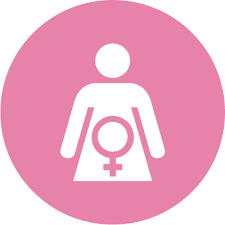

  |
|
|
CIVISTA | About Us
| What's New | Services
| Programs | Foundation
| |
|||||||||||||||
|
Civista Women's Health
|
|||||||||||||||
|
UPDATED:
July 2002
e-mail questions |
|||||||||||||||

|
Women's health depends on many factors: the environment, lifestyle, physical activity, heredity, proper nutrition, regular examinations, the presence or absence of stress and depression. Women's health includes not only body and face care but also constant monitoring of the state of internal organs, adherence to the recommendations of doctors and periodic examinations in clinics. The health of each person begins to form even before his/her birth: at the time when the pregnancy is passing; it is also necessary to monitor the condition of the fetus and, if necessary, take measures. The stages of growing up have their own characteristics: for example, after menopause, the amount of hormones in the body is significantly reduced. Therapeutic and diagnostic direction for the early diagnosis of female reproductive cancersGynecologist-endocrinologist assistance
Help from an oncologist-mammologist
Surgeon's help
Endocrinologist assistance
Neurologist's help
Urologist's help
Diagnostics
Rehabilitation of women who received specialized anticancer treatment for breast cancerOncologist assistance
Psychologist's help
Department of oncogynecologyOncogynecology is a medical discipline that studies malignant tumors of the female genital organs. This form is cancer is one of the most dangerous. Ovarian cancer is responsible for 1/5 of all cancer deaths in women. Some scientific studies suggest that nulliparous women are at higher risk for the disease. Malignant neoplasms grow into neighboring organs, their cells can move along the lymphatic and circulatory systems of the body, forming metastases in the body. Cancer of the uterus (endometrium) ranks seventh in mortality among all malignant neoplasms. Scientists call the reason for this type of gynecological oncology a mutation in endometrial cells, as a result of which the cells begin to divide uncontrollably and the tumor grows. Also, some researchers note that the risk of uterine cancer increases 2-3 times if a woman has not given birth. Uterine sarcoma arises from the stroma of the mucous membrane, muscle and connective tissue of the myometrium. This disease is much less common than other gynecological cancers. Cancer of the outer genital organs is common in older women. However, vaginal cancer rarely develops in much younger females. In at least half of the cases, it is justified by the human papillomavirus. Often this type of gynecological oncology is preceded by a general poor state of the body and the absence of regular medical examinations. This leads to various skin diseases, which progress and cause uncontrolled mutations and cancer. Treatment methodsTreatment methods are selected individually for each woman. The choice of technique depends on the presence of such facts as a desire to become pregnant in the future, the presence of concomitant diseases, as well as the age of the patient. Female health clinics ad departments offer the following treatment options:
If there is such a need, after treatment, the patients are sent to hospitals for rehabilitation or further treatment. A regular visit to a gynecologist-endocrinologist is also extremely important for maintaining women's health since the endocrine system affects many processes in the female body. You should contact a medical specialist immediately if you have any of the following problems:
If a woman visits a gynecologist-endocrinologist for the first time, she will receive detailed advice and undergo a full examination. If there are certain indications, auxiliary diagnostic procedures are prescribed. All girls should undergo preventive breast examinations eery year, starting from puberty. Women who have had breast trauma, abortion, diseases of the reproductive system, as well as women with hormonal disorders should pay close attention to their health. The following are used as the main methods for diagnosing breast diseases:
If you find signs that are not characteristic of the normal state of the mammary glands (heaviness, pain, redness, unusual discharge from the nipple, and others), you should immediately consult a doctor. Modern medicine makes it possible to diagnose diseases at the early stages of the pathology. Medical specialists will carry out an examination, diagnostics, the necessary research, and, if necessary, prescribe therapeutic measures. |
||||||||||||||
|
|
|||||||||||||||
|
| Civista | About Us | What's New | Services | Programs | Foundation | Employment | Auxiliary | Contacts | ? 1998-2001 Civista Health, Inc. All rights Reserved |
|||||||||||||||